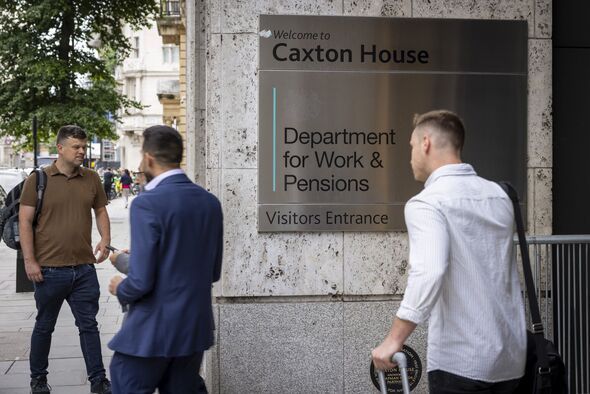

State pensioners are urged to check if they can continue claiming Personal Independence Payment (), which can be worth up to £737 per month.
PIP, a distributed by the Department for Work and Pensions (DWP), has two components: a daily living part for help with everyday tasks and a mobility part for assistance with moving around.
Each component has two rates - standard and enhanced - and eligibility depends on the difficulty an individual experiences with specific tasks.
Whether people get one or both parts and how much they get depends on how difficult they find individual tasks.
Unlike some benefits, PIP is based on how a health condition affects someone's daily life, not their income or savings. It can provide a significant financial boost for those in need, making it important to know the rules.
 Can state pensioners continue to receive PIP?
Can state pensioners continue to receive PIP?
While new claims for PIP, Disability Living Allowance (DLA), or Adult Disability Payment (ADP) generally cannot be made once someone reaches the state pension age (currently 66), there are exceptions that may allow pensioners to continue receiving these benefits.
Already claiming PIPIf someone is receiving PIP, DLA, or ADP when they reach state pension age, their payments will continue until the end of their award period. At that point, the DWP will review their case to determine if they still qualify.
Reclaiming PIP after a recent claim endedIf a person previously claimed one of these benefits but stopped less than 12 months before reaching state pension age, they may be able to reclaim it - but only for the same health condition as before.
This means that many older people who already rely on PIP to manage the extra costs of disability or long-term illness could keep receiving support even after they qualify for their state pension.
With the complexity of the rules, it's easy for state pensioners to assume they're no longer eligible for benefits, especially if they're unfamiliar with the system.
This misunderstanding could leave thousands missing out on the financial support they're entitled to.
For example, someone who has been receiving PIP for years may not realise their payments don't automatically stop at 66 - they continue until their case is reviewed.
Similarly, individuals who stopped claiming shortly before their pension age may not be aware they could still qualify to reclaim, provided their circumstances haven't changed.
What if state pensioners can't claim PIP?For pensioners who didn't start claiming PIP, DLA, or ADP before turning 66, is a benefit designed for those with care needs in later life.
While it doesn't include mobility support, Attendance Allowance offers weekly payments of £72.65 or £108.55, depending on the level of care required.
Ongoing awards for pensionersIn 2019, the DWP made a significant change for older PIP claimants. Claimants whose reviews would have taken place after they reached state pension age are now generally awarded ongoing payments.
Review periods for PIP vary widely, based on individual circumstances. Awards can range from as little as nine months to as long as 10 years, depending on the likelihood of someone's condition changing.
Ongoing awards, however, are not typically subject to reassessment unless the claimant's condition changes significantly.
The number of people aged 65 and over claiming PIP or ADP in the UK includes:
PIP will rise in April, in line with last September's inflation rate of 1.7%. The new rates for each component will be as follows:
Daily Living Component
Mobility Component
The easiest way to claim is to phone the . Claimants must then fill in a form, after which they'll then undergo an assessment.